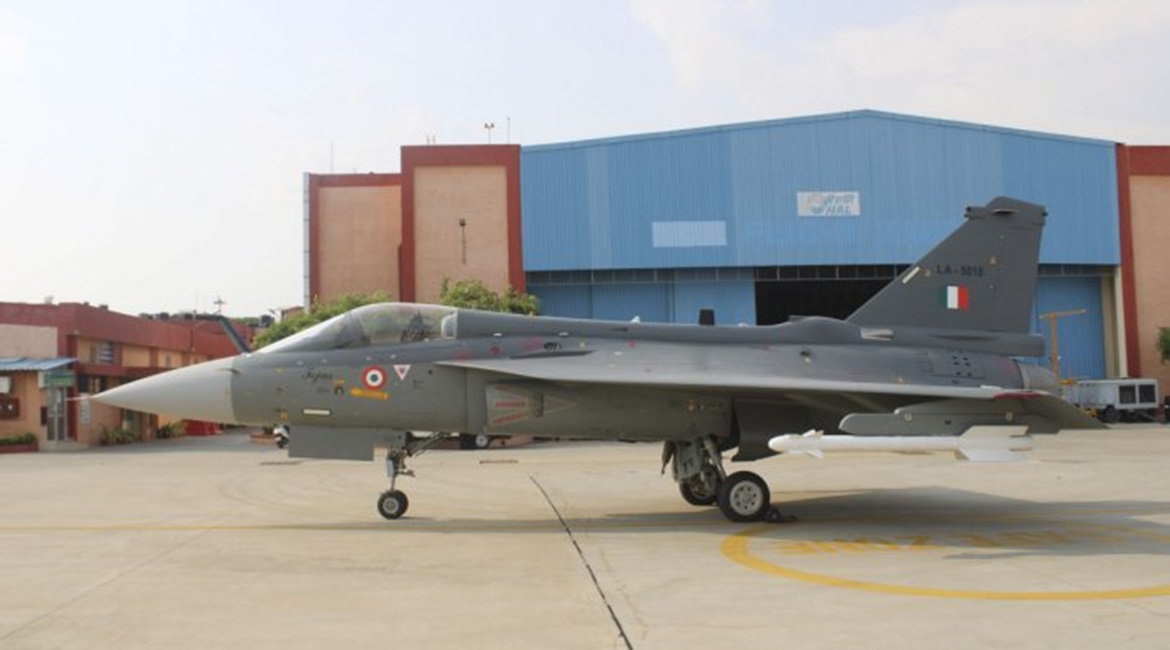
The Indian Ministry of Defence (MoD) released on 3 August a new policy to support advances in indigenous defence manufacturing and military exports.
The draft Defence Production and Export Promotion Policy 2020 (DPEPP 2020) – one of a series of recently unveiled defence industrial reforms – reflects India’s commitment to boost self-reliance.
This obligation has intensified in recent months through the weaknesses in Indian defence-production supply chains that have been exposed by Covid-19.

India’s draft defence production and export policy outlines a strategy to move away from licenced production towards those, such as the production of Tejas Light Combat Aircraft (pictured), led by local industry. (Hindustan Aeronautics Limited)
According to the MoD, the DPEPP 2020 is intended to position India “amongst the leading countries of the world in defence and aerospace sectors”.
It added, “The DPEPP 2020 is envisaged as [an] overarching guiding document of [the] MoD to provide a focused, structured, and significant thrust to defence production capabilities … for self-reliance and exports.”
The draft policy outlines several strategies to support defence industrial development through efforts, for example, to grow small businesses, encourage innovation, increase inward foreign investment, strengthen state-owned institutions, and “optimise resource allocation”.
In terms of sales, the DPEPP 2020 also outlines a target for domestic industry to more than double the value of aerospace and defence sales over the next five years.
According to the MoD, total aerospace and defence sales in 2019–20 were worth INR800 billion (USD10.6 billion), with 79% of this attributed to the state-owned enterprises and the remainder to the private sector, including 8,000 small and medium-sized enterprises (SMEs). The value of defence exports in 2019–20 was INR91.15 billion.
Looking to read the full article?
Gain unlimited access to Janes news and more...






